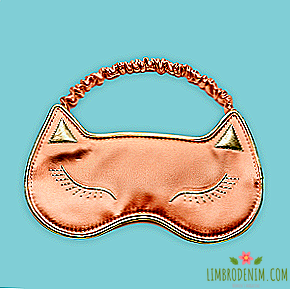Is it true that washing your hands often is harmful
Text: Karina Sembe
Care for your own health leads to different precautions: many of them are optional, and some are completely harmful. Since childhood, we are taught to wash our hands, coming from the street and before sitting at the dinner table. Having matured, someone continues to follow simple rules, relying on ordinary soap and common sense, and someone decides to wage an intensified struggle with bacteria, in which not all means are equally good.

Thousands of species of microorganisms inhabit the earth, water, air and food, and many of them do not pose a danger to humans - moreover, we have learned to benefit from them: bacteria enzymes contained in yogurt or kefir can be a useful part of the diet of people with intolerance lactose and some probiotics are effective for diarrhea. Nevertheless, pathogenic bacteria can cause various ailments - from a slight bowel disorder or food poisoning to anthrax - and are fraught with death, not to mention viral infections transmitted by airborne and contact-household routes.
As part of product quality control and hygiene recommendations, the FDA pays special attention to food poisoning. The most common sources are Salmonella and E. coli, or E. coli: both types of bacteria in a "neutral" form live in the human intestine, but when ingested through the esophagus are dangerous. Infection with salmonellosis usually occurs through infected animal products (meat, eggs, milk), and the virulent E. coli strain can be picked up, say, by drinking running water contaminated with sewage, eating a product washed with this water, or neglecting hygiene during hike to the restroom.
As you can see, the need to wash hands, pasteurize milk and food hygiene in general has not been canceled. Nevertheless, at the first opportunity to rub your palms with an antiseptic and scrub your nails with an antibacterial soap brush is not a panacea. Moreover, some researchers believe that alcohol-based hand antiseptics can be toxic and even reduce resistance to bacteria. It is important to know that in order to effectively combat microbes in such a gel or lotion there must be at least 60% alcohol, otherwise it is simply not very useful liquid, to put it mildly. Antibacterial soap and antiseptics containing benzalkonium chloride, benzethonium chloride and triclosan are less effective, and their safety for the body is questionable. The camp of anti-antiseptic opponents is no small, among them is Dr. Samer Blackmon, an internal medicine specialist from the state of Georgia, USA. "Constantly using antiseptic for hands, you destroy bacteria that help support your immune system, and thus allow germs to enter the body and cause disease," says Blackmon.

Antibacterial agents and frequent hand washing can cause dryness and lead to the formation of microcracks.
Such loud statements are not always supported by convincing arguments. However, not the fact that the panic craving for cleanliness will be your guarantee of health. Studies have shown that patients who grew up in rural areas, on average, are less prone to allergies, and children who have pets or frequent contact with brothers, sisters, and peers in kindergarten are less likely to suffer from asthma. The immune system of a growing organism is formed by everyday contact with microbes, adapting to life in the “native” environment, and when access to bacteria, parasites and viruses is limited, the ability to combat them does not develop fully.
Another group of scientists notes that the use of antiseptics, especially in regions where the issue of public hygiene is acute, helps to instill its observance of students. Some associate the use of antiseptic gels and a reduction in the incidence in schools and universities, but the assessment of the results of such studies should be treated with caution: often the methods are non-randomized, and the reports are not sufficiently detailed. Whatever it was, the doctors do not recommend neglecting cleansing and relying on "natural protection", however, they urge you to use common sense: wash your hands if you are nearby a sick person, and after using the restroom, after blowing your nose, before cooking and food intake.
Antibacterial agents and frequent washing of hands can cause dryness and lead to the formation of microcracks, through which bacteria easily enter the body. According to doctors, for effective cleansing is quite enough ordinary soap and water. The advantages of antibacterial soap and antiseptics in reducing the risk of infections of the digestive and respiratory tract are not supported by sufficient evidence. “Antiseptic gels have a place in hospitals,” notes Dr. Jeffrey Engel, an epidemiologist from North Carolina, USA. “And even there, the use of antiseptics is always accompanied by mandatory hand washing.” Antibacterial soap and gels will come in handy when traveling, in regions with problem access to clean running water and other emergency situations.
Photo: design56 - stock.adobe.com, AlenKadr - stock.adobe.com




